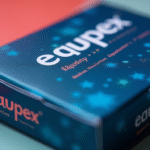Introduction
The European Union (EU) is now willing to sign trade agreements with countries in Latin America’s Cono Sur and expand its commercial ties with Mexico, given the prevailing conditions in the global economy. This shift comes as technical teams in Claudia Sheinbaum’s cabinet have largely focused on negotiations with the Trump administration.
EU’s Trade Initiatives
Under the leadership of Úrsula Von der Leyen, the EU is poised to finalize and sign a trade partnership agreement with Mercosur and modernize its global trade deal with Mexico. The only remaining steps are the approval from the European Parliament and support from a majority of EU member states for both projects.
However, there is resistance from agricultural producers, primarily in France, which may lead to consequences for these agreements.
Benefits of the Modernized EU-Mexico Trade Agreement
The updated agreement between the EU and Mexico will open Mexico’s market to EU exports, while reinforcing commitment to sustainable development, crime fighting, migration, and gender equality. The agreement promotes and safeguards human rights, multilateralism, security, and strategic cooperation on key issues such as reducing supply chain risks, ensuring essential raw material supplies, and combating climate change.
This modernized version of the 2000 EU-Mexico agreement will provide crucial access to essential raw materials, benefiting strategic industries in the Old Continent. Mexico is a significant supplier of fluorite (used in various chemical, steel, and ceramic processes), bismuth (used in pharmaceuticals and cosmetics), and antimony (used in flame retardants, lead-acid batteries, glass, and ceramics).
Agricultural Sector Gains
Mexico, being a net importer of food, will greatly benefit EU agricultural exporters. The modernized agreement eliminates prohibitive tariffs on EU agro-food exports to Mexico, such as cheese, poultry, pork, pasta, apples, jams, chocolate, and wine. These tariffs previously reached up to 100% on certain EU exports.
The tariff removal will make EU agricultural products more competitive in the Mexican market. Simplified procedures will also enable agro-food exporters to sell their products in Mexico more quickly and economically. The agreement further expands protection against counterfeits to 568 European traditional food and beverage products known for their high quality (geographical indications).
EU’s Strategic Partnerships
Von der Leyen emphasized, “These agreements with Mercosur and Mexico are significant milestones for the EU’s economic future,” adding, “These agreements will solidify our position as the world’s largest trading bloc.”
Kaja Kallas, the EU’s Vice-President and High Representative for Foreign Affairs and Security Policy, stated, “Europe needs more than ever strategic alliances with trusted partners in the current complex geopolitical context.” She added, “These agreements bring stability to an uncertain world; they strengthen our strategic association and political cooperation, and enhance our historical ties with Latin American countries.”
Key Questions and Answers
- What are the new trade agreements the EU is pursuing? The EU aims to sign a trade partnership agreement with Mercosur and modernize its existing agreement with Mexico.
- What benefits will the modernized EU-Mexico agreement bring? It will open Mexico’s market to EU exports, reinforce commitment to sustainable development, and provide crucial access to essential raw materials.
- How will the agricultural sector in the EU benefit from this agreement? The agreement eliminates prohibitive tariffs on EU agro-food exports to Mexico, making these products more competitive in the Mexican market.
- Why are these agreements significant for the EU? They solidify the EU’s position as the world’s largest trading bloc and bring stability to a complex geopolitical context.






